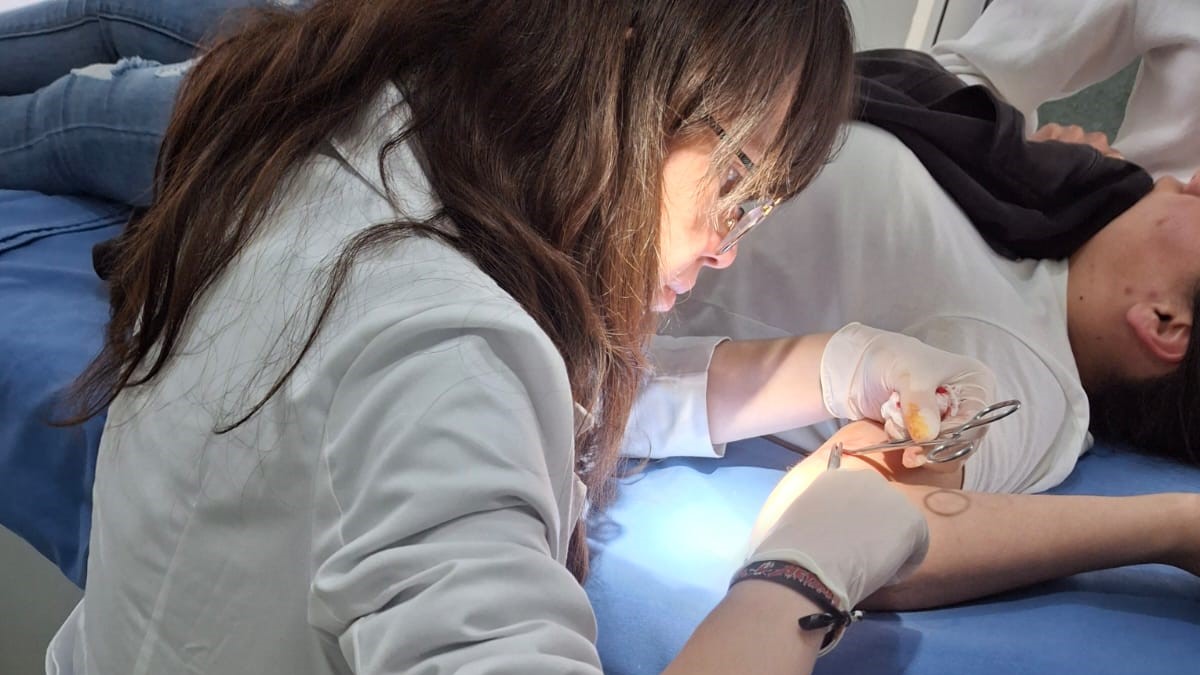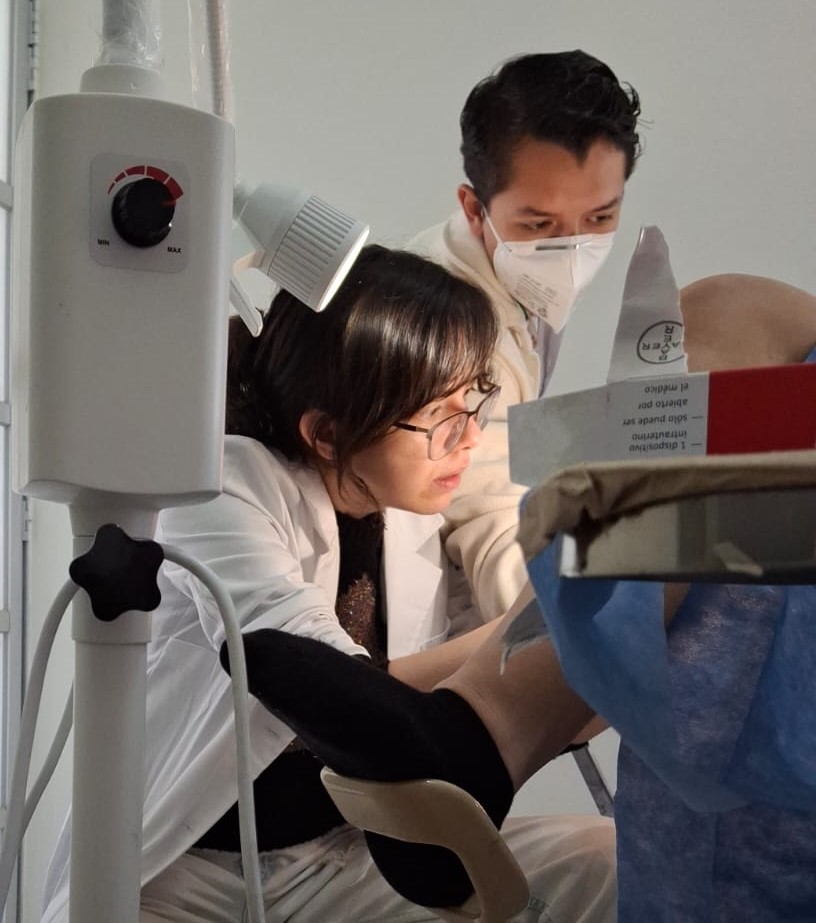Read this story en español or em português.
In Mexico, the final year of medical school takes place in the country’s most remote and marginalized communities, where young doctors often struggle with unreliable supplies of medicine, outdated medical equipment, and lack of access to specialists. All new doctors in Mexico are required to complete a year of social service in a remote area, providing a safety net for people in rural and underserved communities.
Historically, these social service doctors, known as “pasantes,” have been unsupervised and unsupported, diluting their impact in the communities where they work.
Now, however, pasantes in the Mexican states of Hidalgo, Morales, Oaxaca, and Tlaxcala receive ongoing support and exchange best practices through Project ECHO. The Pasantes ECHO Program, a partnership of the ECHO Institute, the National Autonomous University of Mexico, and the state health secretaries, helps pasantes practice medicine in under-resourced areas. Through ECHO, these new doctors build both confidence and problem-solving skills, making their year of service more impactful—and more gratifying.
Systemically Improving Patient Care
“Even the patients themselves report that they have noticed a great improvement in the way they are treated,” says Abimael Garcia Pérez, a pasante who works at a community center in an underserved area of Mexico City. “I believe that this type of program not only helps to improve the quality of care with patients, but it also gives us a lot of certainty as doctors, knowing that what we do has a great foundation.”

Pasante Alejandra Arroyo Cordero works at Unidad de Cuautepec de Hinojosa in Hidalgo. Photo Credit: Pasantes ECHO Program, October 2024.
The Pasantes ECHO program launched in March 2020, as the COVID-19 pandemic was taking hold. Because of differences in population, epidemiology, and geography, each of the four participating states runs its own ECHO program in partnership with a local university. However, all four pasante programs focus on primary care, addressing issues including: maternal and child health, cardiac disease, skin conditions, and other common challenges.
During the ECHO sessions, a pasante presents a case from their practice. Other participants ask clarifying questions, and, together, with specialists from their local university, they come up with recommendations for next steps.
Guided Practice in Rural Areas
Erika Nájera, a pasante working in the Tlaxcala state, recalls a presentation by one of her colleagues on pediatric fever that helped her when she faced a distraught mother whose child had a high fever. Because of the ECHO session, Nájera was able to explain every step of the treatment process to the mother with confidence and reassure her. “This is a condition that can occur in children under five years of age, and that is the big difference that needs to be explained to parents, so that their fear is not transmitted to their children, and they are not constantly on the lookout,” she says. “So, there are two parts: how to treat the parents and how to treat the case.”
For Alicia Romero Aguilar, a pasante who works in the Hidalgo state, having access to university specialists has been particularly helpful. She recalls a case presentation she made during an ECHO session regarding a patient with what appeared to be atypical dermatitis. As the presentation progressed, peers and a specialist doctor asked clarifying questions, and they reached a diagnosis of photodermatitis, or “sun allergy.”
Romero Aguilar notes that, in the community she serves, dermatitis is common, and patients frequently ask how to treat it and how long it will last. Now, she says, she has the information she needs to “convey to the whole community, more or less, the recovery time and how they have to take care of this”—and even how to prevent the condition.
The case is a great example of how ECHO not only helps train young doctors to practice medicine but also supports health system building, as the pasantes are the foundation for care in Mexico’s rural and underserved areas. Without the pasantes, people in many of these communities would not be able to get care. Through ECHO, patients have access to care from pasantes—and from specialists. Ultimately, the goal is to expand the program to all 32 of Mexico’s states.
For more information about Project ECHO’s programs and partners in Latin America, email us in English, en español, or em português
Featured Image: Pasante Alejandra Arroyo Cordero works at Unidad de Cuautepec de Hinojosa in Hidalgo. Photo Credit: Pasantes ECHO Program, October 2024.

